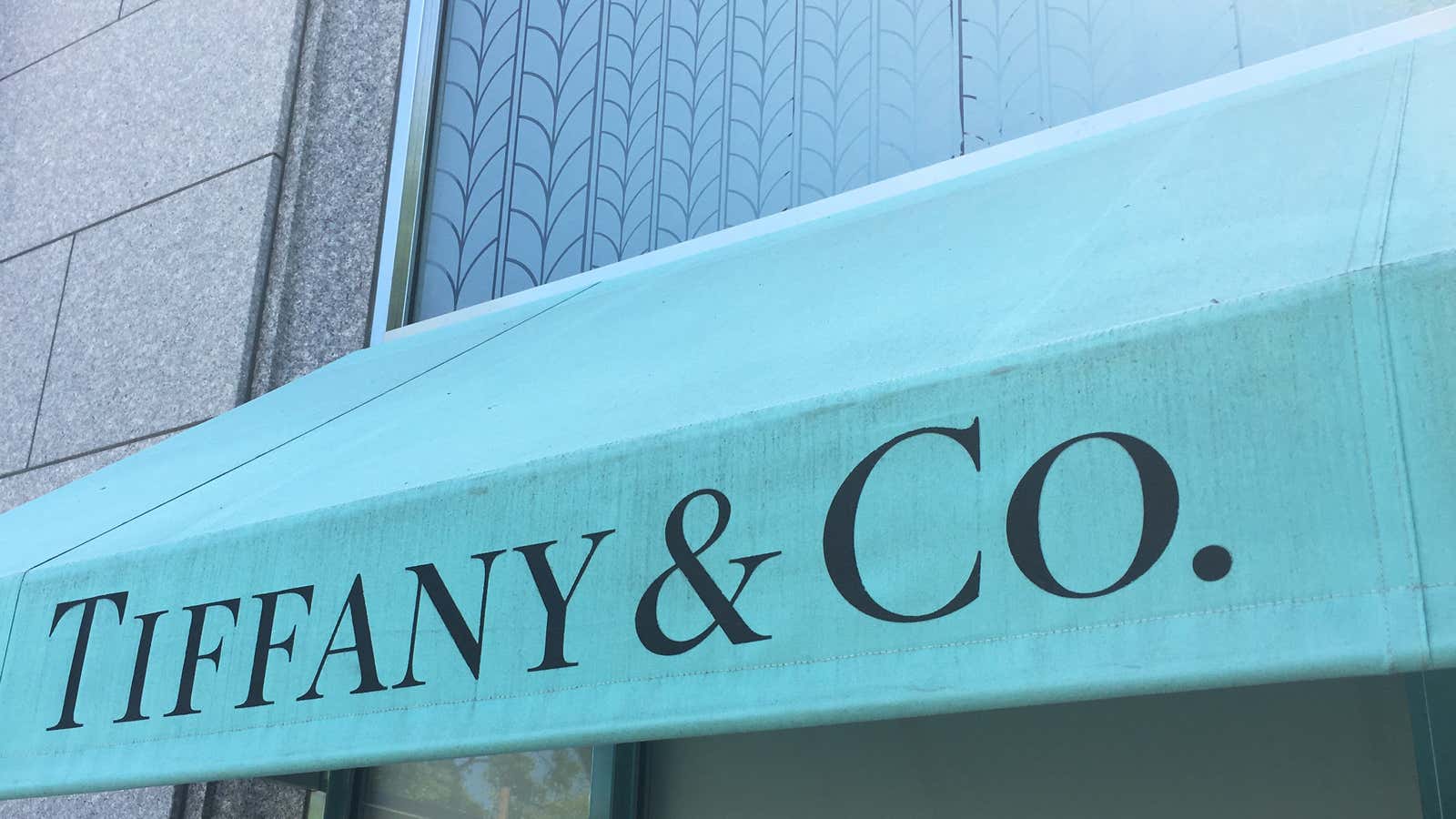LVMH, the world’s largest luxury group, is looking to get even bigger. The French conglomerate has offered about $14.5 billion to buy American jewelry house Tiffany, according to an Oct. 26 report from Bloomberg. LVMH has since confirmed (paywall) it had “preliminary discussions” with Tiffany, but said there’s no certainty an agreement will result.
Still, if the deal were to happen, it would make LVMH that much more formidable a rival to its luxury competitors, especially Richemont, the Swiss owner of brands including Cartier, Van Cleef & Arpels, Piaget, and more. Richemont has stood apart as the leader in “hard luxury” sales of watches and jewelry but if LVMH struck a deal for Tiffany, it could put its hard-luxury dominance in eventual jeopardy.
Compared to its rivals, LVMH is already a monster. In 2018, it brought in €46.8 billion ($51.9 billion) while Richemont did about €14 billion in its most recent fiscal year. Kering, the French group that owns Gucci, Saint Laurent, and others, did €13.7 billion in its most recent year. This gargantuan size is due to the breadth of LVMH’s business, which includes fashion and leather goods, wines and spirits, perfumes and cosmetics, and a segment comprised of retailers such as Sephora and Le Bon Marché. Its jewelry and watch brands, which include Bulgari, TAG Heuer, and Hublot, have trailed behind those other divisions in terms of total size.
This state of affairs has allowed Richemont to remain the leader in hard luxury. Combined, its watch and jewelry sales (pdf) reached €10 billion in its most recent year, versus LVMH’s €4.1 billion.
A Tiffany deal “would potentially double the size and profitability” of LVMH’s hard luxury business, analysts at investment firm Jefferies wrote in a note to clients. Sales of those items would reach nearly €9 billion.
LVMH may also be chipping away at Richemont’s position already. LVMH’s 2011 purchase of Bulgari has worked well for it. “While there are no numbers available, the widely held impression is that Bulgari has gained market share against Cartier in the past few years,” Luca Solca, luxury analyst at Bernstein, said in a note (paywall).
Though Tiffany’s sales have lately slumped as fewer tourists have been spending at its stores in places such as the US and Hong Kong, the historic brand is an attractive target for LVMH. Growth in the luxury sector as a whole has slowed in the past few years and companies such as LVMH looking to expand through acquisitions have few independent targets to choose from these days, especially in hard luxury.
LVMH’s size and resources could be harnessed to quickly expand Tiffany’s sales in regions such as Asia while improving the conglomerate’s overall profitability. It would make LVMH even stronger, though the deal isn’t done yet.
